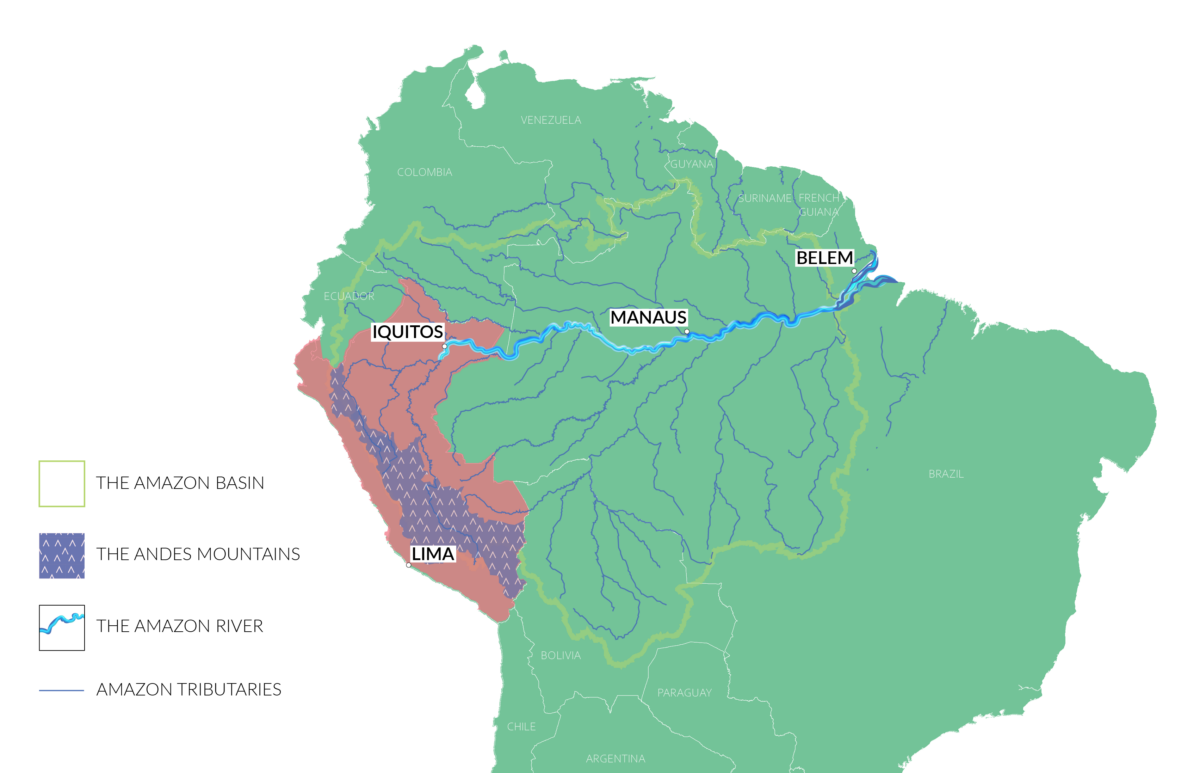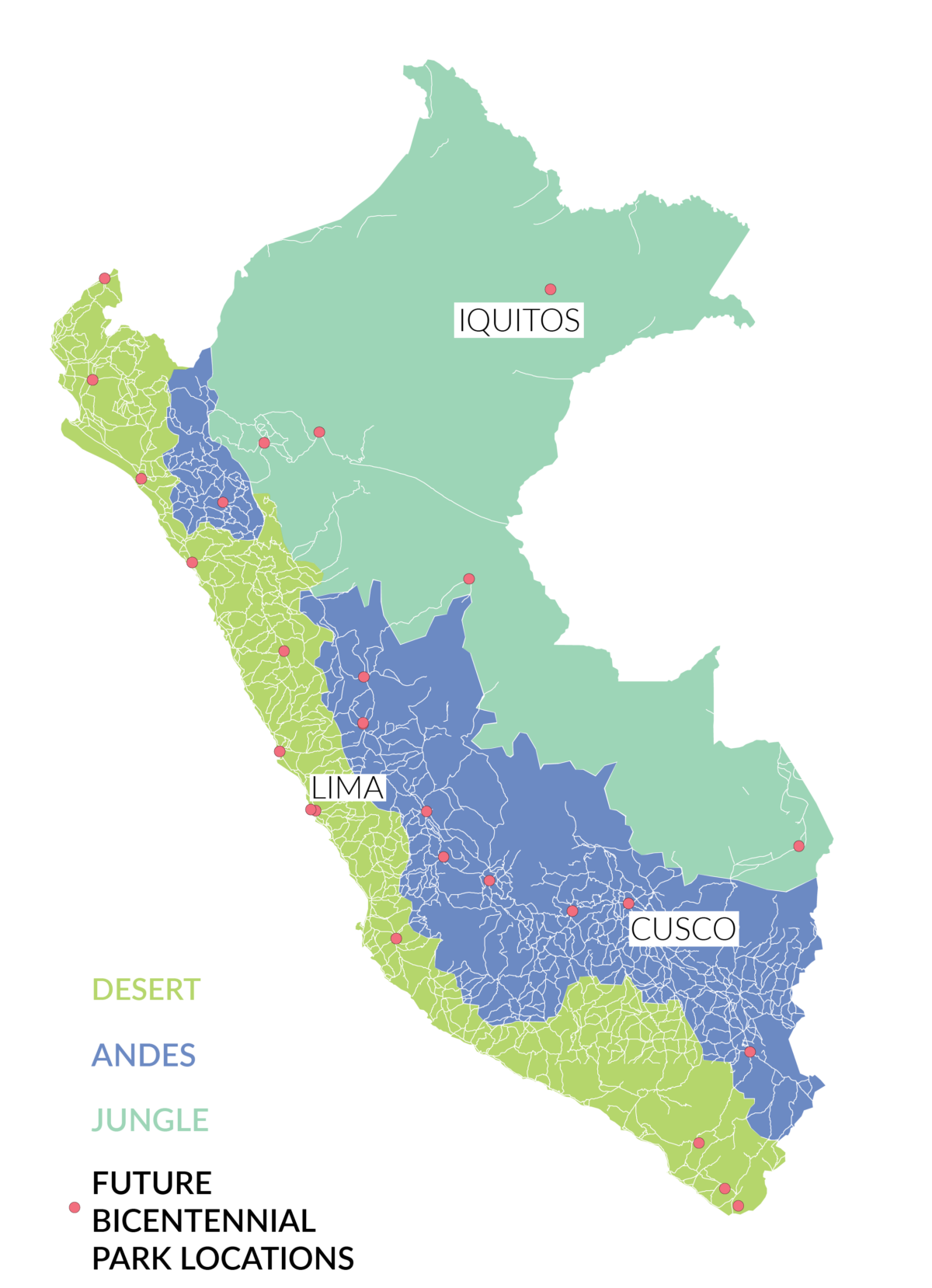Urban landscapes have become characterized by static, impervious systems, disconnected from nature. In Iquitos, a city of half-a-million in the Peruvian Amazon, attempts to replace natural systems with engineered infrastructure have yielded unhealthy conditions for both the human residents and the surrounding ecology. As Peru unrolls a national initiative to build commemorative Bicentennial parks, we envision this as an opportunity to revive an economy that has suffered from boom and bust cycles of extractive industries. This thesis explores the relationship between conventional city infrastructure and natural systems in the Amazon region across spatial and time scales to answer the question; how can urban parks serve as critical infrastructure to support the local economy, address human and ecological health, and celebrate cultural identities?

